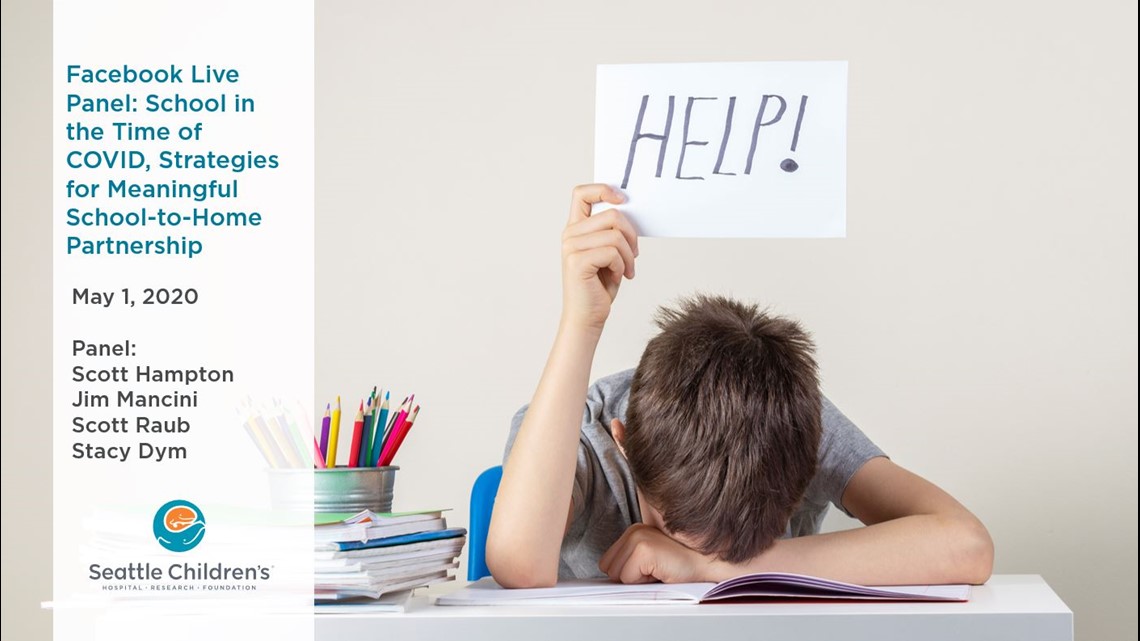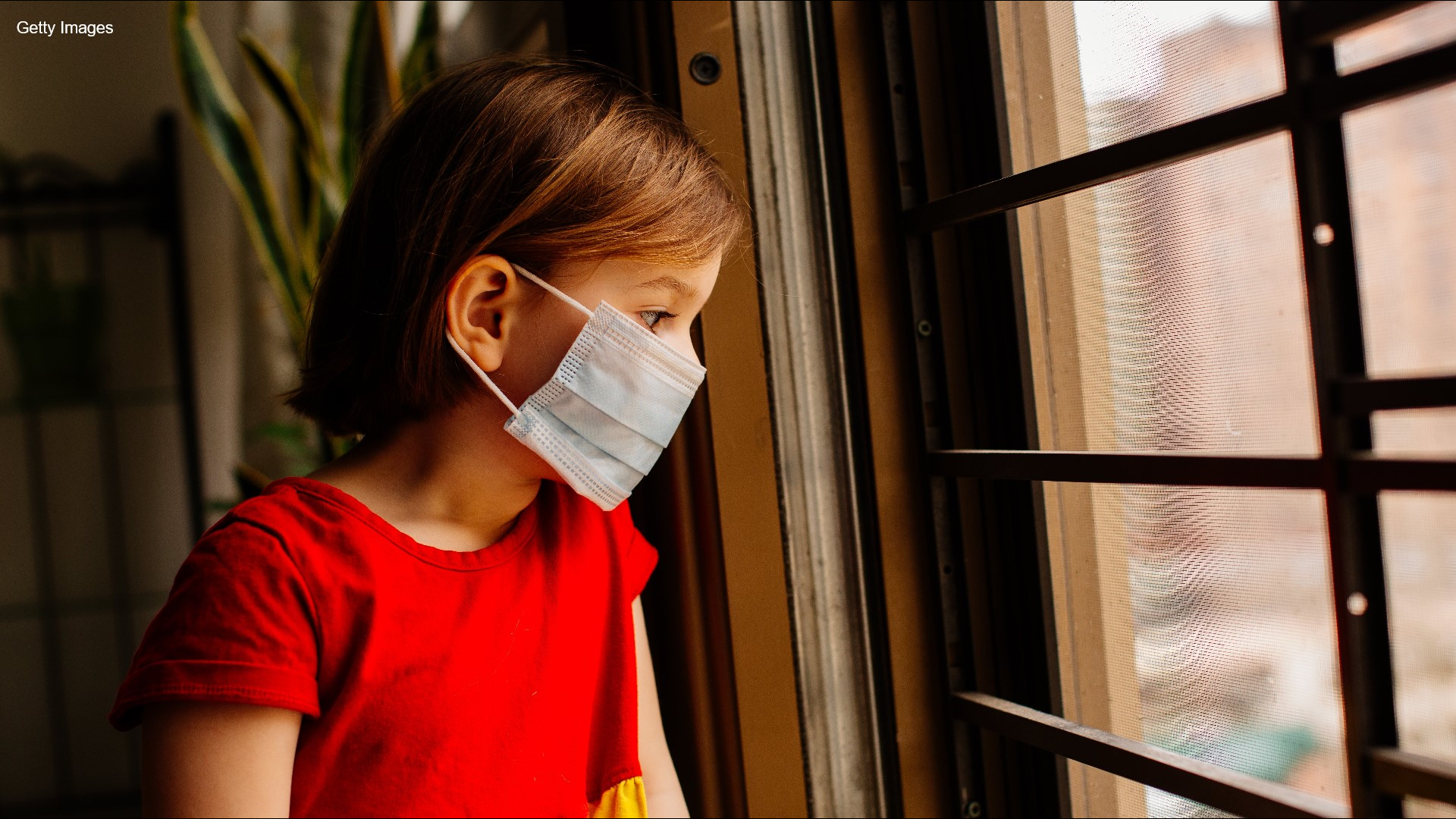SEATTLE — Helping children cope with bad or disturbing news is never an easy task. During this COVID-19 pandemic, when every day is filled with uncertainty, it is especially difficult.
According to Dr. Kendra Read, a psychologist and director of anxiety programs at Seattle Children’s Hospital Psychiatry and Behavioral Medicine clinic, navigating kids through the swath of mounting death totals and unending quarantines is crucially important.
“There is an onslaught of information out there about what's going on in the world and it can feel incredibly overwhelming for parents and for kids alike,” she said. “It is really helpful to have frank conversations with your children about what's going on in the world right now so that they have an opportunity to share what they believe is going on, what they've heard, maybe what they're worried about or thinking about."
Part of the challenge in helping kids deal with current events is adults are often struggling themselves. But acknowledging that fact can be beneficial to children as they look for guidance.
“It's not wrong or abnormal for you to experience these emotions like (anxiety), frustration, sadness disappointment – all of these things are normal emotions,” Read said. “Parents talking about their experience destigmatizes that experience for their children. It also provides parents a chance to model how to respond adaptively to those emotions. You give your children an example of a path forward in the midst of experiencing something really difficult.”
If you need some assistance reaching out to your kids, Seattle Children’s Hospital has a number of online resources available to help parents, including Facebook Live panels and events. These can be especially helpful when parents have tried to initiate conversations, but kids don't respond.


Parents should be on the lookout for nonverbal cues that their children may be struggling: “When people feel strong emotions, especially anxiety, we tend to see some behavioral changes,” Read said. “And that can take a number of different forms. Some of the examples that we are seeing these days might be over-avoidance of things that aren't dangerous, or overdoing some of the medical recommendations like over-washing your hands or avoiding even going out into the backyard where there aren't any other people there.”
Keeping watch for those types of behavioral changes can help you determine if your child isn’t coping well with the pandemic. Another way to help them is to limit their media intake and only turn to reliable, trusted sources for pandemic information like the CDC or the Washington State Department of Health, and other local organizations.
“Just to cut down on the sheer volume of information and make sure that the facts that you're getting are accurate,” Read said.
For more on how to help you and your kids manage your emotions, visit the Seattle Children’s Hospital website.
Sponsored by Seattle Children's. Segment Producer Heidi Eng. Watch New Day Northwest 11 AM weekdays on KING 5 and streaming live on KING5.com. Contact New Day.

